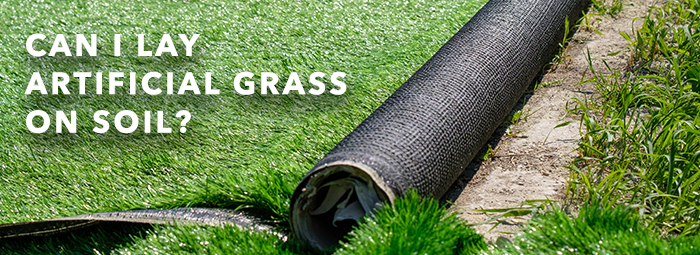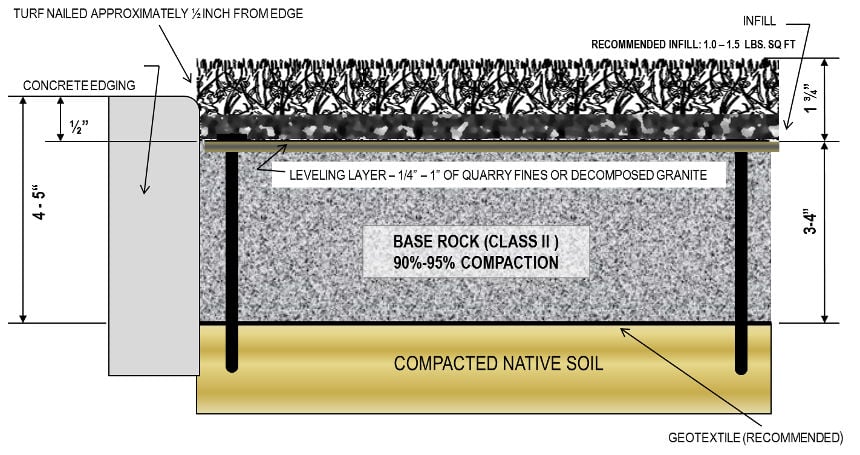Highly-Rated Turf Installation Canoga Park Companies for Homeowners
Top Factors to Take Into Consideration Artificial Turf for a Low-Maintenance and lush Backyard
As property owners progressively seek sustainable remedies for outdoor areas, artificial lawn offers an appealing alternative to conventional lawns. Its capability to keep a vivid appearance year-round without the problems of chemical, watering, or mowing treatments makes it a practical selection for those aiming to decrease upkeep initiatives. Furthermore, the ecological benefits, including considerable water preservation and reduced dependence on chemicals, align with contemporary eco-friendly values. However, the benefits expand beyond plain looks and sustainability; discovering the multifaceted implications of fabricated lawn reveals a thorough technique to lawn monitoring that advantages much deeper consideration.
Year-Round Plant
One of one of the most considerable advantages of fabricated yard is its capability to supply year-round greenery, despite environment conditions. Home owners often encounter difficulties in preserving a dynamic yard as a result of seasonal adjustments, dry spells, or hefty rains. Artificial grass removes these worries, making sure a continually lush appearance throughout the year.
This synthetic option is crafted to hold up against diverse weather situations, from sweltering summertime warmth to freezing winter months temperature levels. Unlike natural yard, which may brownish or end up being irregular during extreme problems, synthetic grass maintains its dynamic color and appearance, improving the visual allure of any kind of landscape.
In addition, fabricated turf is resistant to bugs and diseases that usually influence natural lawns. This resilience adds to its long-lasting elegance, as there is no requirement for chemical treatments or plant foods that can be hazardous to the atmosphere. In addition, homeowners can delight in the visual benefits of a well-kept yard without the intermittent difficulties presented by all-natural yard treatment (backyard artificial grass).
Reduced Maintenance Initiatives
Fabricated yard significantly reduces upkeep initiatives, enabling property owners to delight in a beautiful lawn without the taxing jobs connected with natural yard treatment. One of one of the most notable advantages of artificial turf is the removal of routine mowing. With no demand for a lawnmower, home owners save both time and the cost of upkeep connected with this devices.

Cleansing artificial grass is straightforward; a simple rinse with a hose or the periodic cleaning to get rid of particles is normally adequate - backyard artificial grass. This convenience of treatment enables property owners to spend even more time appreciating their outside areas rather than struggling over them. In recap, the minimized maintenance efforts linked with man-made lawn make it an appealing choice for those looking for a lovely, easy yard
Water Preservation Conveniences
The considerable reduction in maintenance initiatives associated with synthetic grass includes water preservation, making it an eco-friendly alternative for homeowners. Standard grass call for considerable quantities of water to stay dynamic and rich, commonly resulting in too much water usage, particularly in dry regions. In comparison, fabricated lawn eliminates the demand for regular watering, drastically minimizing the overall water intake in your yard.
By going with synthetic grass, homeowners can save hundreds of gallons of water every year. This change not just benefits specific households however additionally adds to more comprehensive environmental efforts targeted at reducing water waste. In locations experiencing water deficiency, the adoption of synthetic yard can play a significant function in minimizing the effects of drought and making certain that valuable water resources are used extra efficiently.
Moreover, the installment of artificial turf can assist reduced metropolitan water need, benefiting the neighborhood all at once. With expanding recognition of environmental issues, choosing synthetic lawn functions as an aggressive action in the direction of sustainable landscaping, helping to preserve natural water sources while preserving a visually pleasing outside area (turf installation). In recap, synthetic grass offers an engaging option for water conservation, lining up ecological responsibility with modern landscaping needs

Parasite and Allergic Reaction Reduction
A considerable advantage of setting up synthetic turf is its capacity to lower bugs and irritants in exterior spaces. Traditional yard lawns usually function as reproducing premises for bugs such as mosquitoes, ticks, and ants, which can develop discomfort and wellness threats for family members and animals. In contrast, artificial grass eliminates the natural product that attracts these bugs, thus substantially decreasing their populations in your yard.
In addition, natural grass can nurture mold, pollen, and other irritants, which can activate allergic reactions and respiratory issues for sensitive individuals. Artificial grass gives a cleaner atmosphere, reducing the potential for allergenic reactions. Unlike natural yard, synthetic grass does not generate plant pollen, making it an outstanding alternative for allergic reaction victims seeking to appreciate their outside areas without the danger of flare-ups.
Additionally, the absence of dirt in synthetic grass suggests there is much less dust and dust, further minimizing airborne allergens. This low-maintenance alternative not only boosts the aesthetic appeal of your more backyard yet likewise promotes a healthier outside environment, enabling families to enjoy their grass without the continuous concern of irritants and parasites. Therefore, man-made lawn is a calculated option for those prioritizing comfort and health and wellness in their outside home.
Long-Term Cost Savings
Investing in synthetic lawn can lead to considerable lasting expense financial savings for house owners. Synthetic lawn gets rid of the need for normal grass maintenance expenses, such as mowing, feeding, and watering.
Furthermore, the durability of artificial lawn additionally enhances its cost-effectiveness. The majority of premium fabricated grass products can last 15 to 25 years with marginal maintenance, decreasing the need for substitute or comprehensive repairs. On the other hand, natural yard may call for constant reseeding and regular care, which can swiftly build up in costs.
Energy savings are an additional crucial factor. Home owners can expect to see reduced water bills, as synthetic turf does not call for irrigation. Furthermore, the decrease in lawn treatment services can liberate beneficial time and resources, allowing house owners to assign their budget plans in other places.
Verdict
In summary, man-made yard offers many benefits for house owners seeking a vibrant and low-maintenance landscape. Inevitably, the long-term price financial savings associated with fabricated grass solidify its condition as a lasting and useful solution for boosting exterior spaces.
Artificial lawn substantially reduces upkeep initiatives, enabling homeowners to enjoy an excellent grass without the lengthy jobs connected with natural lawn treatment.The considerable reduction in next page maintenance efforts associated here with fabricated lawn extends to water preservation, making it an eco pleasant choice for homeowners. In comparison, artificial grass eliminates the demand for regular watering, substantially minimizing the overall water usage in your backyard.
In areas experiencing water shortage, the adoption of synthetic lawn can play a substantial role in minimizing the impacts of drought and making sure that valuable water resources are used more successfully.
With growing recognition of ecological concerns, selecting fabricated turf serves as an aggressive step in the direction of sustainable landscaping, assisting to maintain all-natural water resources while maintaining a cosmetically pleasing exterior area.